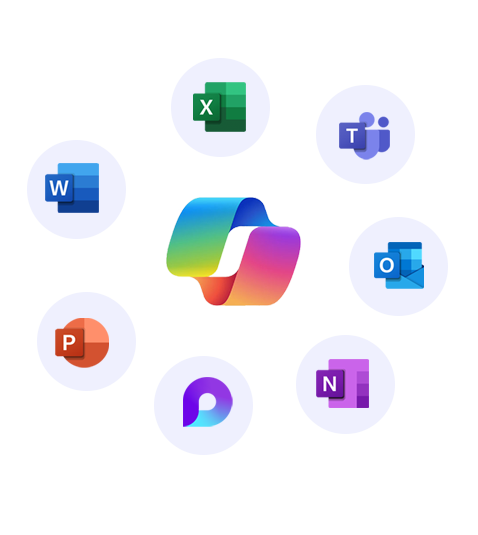Benefits of Microsoft 365 Copilot for Hospital Management
In today’s complex healthcare landscape, hospital administrators face immense challenges in delivering high-quality care, improving patient outcomes, and maintaining financial viability. This is where AI assistants like Microsoft Copilot come into play. Rising costs, staffing shortages, and growing administrative burdens have made hospital management an increasingly difficult task. At the same time, expectations from all stakeholders – patients, providers, payers – are higher than ever. In this dynamic environment, forward-thinking healthcare leaders are exploring innovative solutions that can help streamline operations and maximize resources.
One emerging technology showing great promise is artificial intelligence. Specifically, AI assistants like Copilot have demonstrated an ability to automate routine tasks, analyze large amounts of data, and provide round-the-clock support to healthcare organizations. With its advanced natural language processing capabilities, Copilot acts as a virtual colleague for hospital administrators and clinical staff.
Using Copilot for Effective Hospital Administration
Some of the key ways Copilot is being utilized for hospital administration include:
- Automating Documentation and Reports: For any hospital, compliance is paramount yet documentation places a huge administrative burden. Copilot can help by automating the creation of these documents. For example, it can generate discharge summaries or medical reports based on patient data. Copilot streamlines this process by pulling relevant data from electronic health records and other systems. It can generate compliance reports, patient charts, staff schedules, financial statements, and more with just a simple prompt. This allows nurses, physicians, and other care teams to focus on direct patient care instead of paperwork.
- Optimizing Operational Processes: Many back-office functions like scheduling, inventory management, billing, and supply chain ordering involve repetitive, rule-based tasks that are ripe for automation. Copilot can help streamline these processes. For instance, it can automatically schedule appointments based on doctor availability or reorder medical supplies when stocks run low. Copilot understands complex workflows to partially or fully automate such processes, improving efficiency. For instance, it ensures supplies are reordered just in time to avoid stockouts or expiries. This enhances patient experience while reducing costs.
- Informing Strategic Decision Making: When evaluating major initiatives, administrators require insightful, unbiased analyses. Copilot can assist by providing data-driven insights and recommendations. For example, it can analyze patient satisfaction data to identify areas for improvement or predict future trends based on historical data. Copilot researches best practices from top hospitals and analyzes its performance data. It then provides evidence-based recommendations on issues like new service lines, facility expansions, or partnership opportunities. The AI model considers organizational goals as well as various clinical, financial, and operational factors.
- Resolving Patient and Staff Queries: As a virtual agent, Copilot is available 24/7 to answer questions from patients, providers, and employees through natural language conversations. It can provide information on a wide range of topics, from hospital policies and procedures to patient medical records. It can look up schedules, check insurance coverage, or route more complex issues to the right departments. This improves real-time support for all hospital stakeholders.
- Managing Concurrent Projects: Juggling multiple projects is challenging yet essential for progress. Copilot can help manage these projects by tracking progress, setting reminders for important deadlines, and even suggesting strategies for efficient project execution. The Copilot schedules meetings generates agendas, assigns accountabilities, and tracks milestones. It ensures tasks are completed on schedule through automated reminders and status reports. This allows leadership to focus on strategic oversight.
Hospital Management with Microsoft Copilot
Leveraging an AI tool like Microsoft Copilot allows human hospital managers to spend more time on strategic planning, quality improvement initiatives, dynamic problem-solving, and nurturing staff and provider relationships, thereby revolutionizing the healthcare industry.
Here are some key ways Copilot can support modern hospital management functions when integrated with Microsoft applications and infrastructure:
- Centralize information access with Copilot chatbots on Microsoft Teams for staff. This not only facilitates streamlined internal communications but also ensures that all staff members have access to the same, up-to-date information.
- Automate information gathering and populate dashboard reports in Power BI for real-time performance tracking on metrics like patient wait times, bed occupancy, and readmissions.
- Build master schedules in Outlook and SharePoint using Copilot’s advanced calendar handling to coordinate multidisciplinary care teams efficiently.
- Guide managers in preparing presentations, proposals, and reports via Copilot dialogue. Content is automatically generated in Word and PowerPoint.
- Analyze financial data from accounting tools like Dynamics 365 and suggest optimization strategies to Copilot for review by managers.
- Connect operational systems with Azure infrastructure for streamlined dataflows. Copilot ensures interoperability and flags issues proactively.
- Provide AI recommendations to Dynamics CRM for improving patient experiences based on satisfaction feedback analysis.
- Populate Yammer groups with need-based updates on supply levels, and maintenance works using IoT and asset management data.
Improving Hospital Operations with Copilot
On a day-to-day level, Copilot can help streamline many routine operational processes in hospitals to boost efficiency, patient satisfaction, and care team job fulfillment:
- Patient Check-Ins: Copilot streamlines the check-in process at clinics using voice or touchscreen kiosks, thereby reducing wait times and improving the patient experience. It greets patients, updates records, obtains signatures, and routes them to the right exam rooms seamlessly.
- Discharge Planning: Starting discharge planning early with the help of Copilot prevents delayed discharges and ensures a smooth transition for patients from the hospital to their next care setting. The Copilot coordinates post-acute services, transports, and follow-ups for a timely transition to the next care setting.
- Supply Delivery: It tracks inventory across wards and clinics, places automated re-orders, and routes supplies to nursing stations preemptively based on predicted consumption to avoid stock-outs.
- Equipment Monitoring: Using data from IoT-enabled devices, Copilot monitors key hospital equipment like beds, and ventilators, and monitors for preventive maintenance requirements or urgent repairs.
- Wait Time Management: By balancing schedules dynamically, Copilot ensures outpatient clinic and ER wait times are kept within reasonable limits through optimized rooming of patients.
- Meal Coordination: Using dietary preference data, it places bulk meal orders customized for patients well in advance to streamline nutrition and avoid wastage.
- Waste Management: Copilot helps segregate, compact, and dispatch medical waste for safe disposal as per local compliance guidelines, thereby promoting environmental sustainability and ensuring the hospital’s adherence to waste management regulations.
Benefits of Copilot for Hospital Management
There are several compelling benefits that hospitals can realize by leveraging Microsoft Copilot for various administrative and operational tasks:
- Increased Efficiency: By automating repetitive, rule-based tasks like documentation, scheduling, and billing, Copilot not only increases efficiency but also allows clinical and administrative staff to focus on more critical duties, thereby improving the overall quality of care.
- Reduced Costs: By streamlining processes, optimizing resource utilization, and cutting down on manual work, Copilot helps lower operating expenses for hospitals.
- Round-The-Clock Assistance: As an AI model, Copilot is available 24/7, providing round-the-clock assistance to resolve patient/provider queries, triage issues, and provide real-time support to leadership, ensuring that help is always at hand.
- Improved Decision-Making: The AI assistant analyzes huge amounts of internal and external data to offer unbiased, evidence-based recommendations for strategic and tactical choices.
- Consistent Compliance: Copilot ensures consistent adherence to regulations, policies, reimbursement rules, union contracts, etc., by automating workflows and documentation, thereby reducing the risk of non-compliance and associated penalties.
- Scalable Solutions: The AI model can be customized for the unique needs of individual hospitals as well as scaled across health systems for maximized benefits.
Role of Microsoft 365 Copilot in Managing Hospitals
To navigate the dynamic healthcare landscape, hospital leaders require innovative solutions that can help deliver on objectives like improving the patient and provider experience, enhancing health outcomes, and maintaining financial viability. As an AI assistant, Copilot is well-positioned to play a transformative role through the following key functions:
- Strategic Partner: As a strategic partner, Copilot analyzes performance data and best practices to offer unbiased, data-driven recommendations on long-term initiatives around new services, facilities, partnerships, and technology investments, helping hospitals stay ahead of the curve.
- Decision Support System: The AI model informs complex choices around staffing, scheduling, supply chain management, etc. through evidence-based insights generated from its extensive training.
- Project Management Platform: Copilot schedules meetings, assigns tasks, tracks milestones, and ensures on-time completion of multiple concurrent improvement projects through automated workflows.
- Regulatory Compliance Partner: Copilot understands regulations to create documentation templates and automated checklists that ensure adherence to various compliance needs.
- Data Analytics Platform: Copilot generates real-time operational and clinical insights by analyzing huge volumes of structured and unstructured data available within organizations.
Conclusion
In the rapidly evolving healthcare landscape, Microsoft 365 Copilot emerges as a transformative force. Automating routine tasks, optimizing operational processes, and providing round-the-clock assistance, allows hospital administrators to focus on strategic initiatives and quality improvement. Its ability to analyze vast amounts of data and provide evidence-based recommendations empowers decision-makers with valuable insights. Furthermore, its commitment to consistent compliance and scalable solutions makes it a reliable partner in navigating the complexities of hospital management.
As we move forward, the integration of AI tools like Copilot in hospital management is not just an innovative step, but a necessary one. It holds the promise of a future where hospitals can deliver superior care, achieve better patient outcomes, and maintain financial viability, all while navigating the challenges of the healthcare sector. The journey with AI in healthcare is just beginning, and Microsoft Copilot is leading the way.
Apps4Rent – Tier 1 Office 365 Cloud Solution Provider
Copilot integrates with all your favorite Microsoft apps

Get started with
Microsoft Copilot today!



